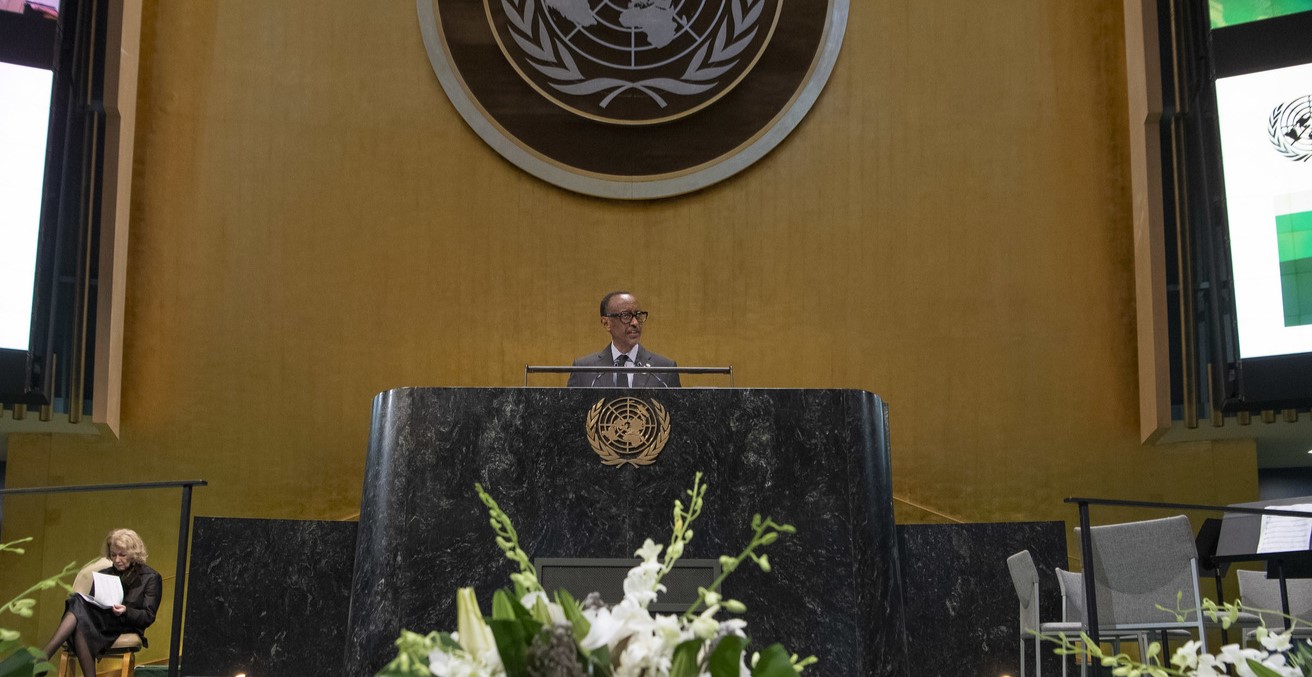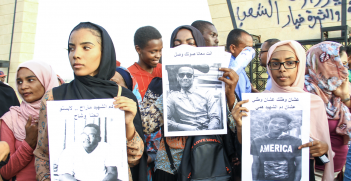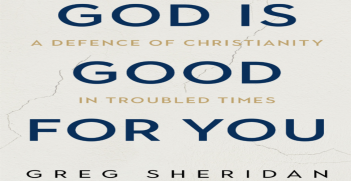Legacies of the Rwandan Genocide

Since 1994, the Rwandan genocide has emerged as a grand signifier of the “failure to prevent” and an important preface for the “responsibility to protect” doctrine. Rwanda’s remarkable economic success and its ongoing efforts to reconcile traumatised communities also deserves reflection.
You Rwandans, you’ve changed the world. Your history of devastation has become our history of collective failure. – Samantha Power, 2014
The occasions of commemorating the Rwandan genocide have prompted the international community to reflect and take stock of these tragic events. On the tenth anniversary, the then UN Secretary General, Kofi Annan admitted,
Neither the United Nations Secretariat, nor the Security Council, nor Member States in general, nor the international media, paid enough attention to the gathering signs of disaster.
Books such as Linda Melvern’s A People Betrayed (2000) and Nicholas Wheeler’s Saving Strangers (2000) developed systemic accounts of the international community’s “failure to protect.” General Dallaire’s, award winning book, Shake Hands With the Devil, presented a damning commentary of this failure through an overarching critique of inhumanity which he revealed in the “dead eyes” and lifeless handshake with perpetrators as well as the callous UN bureaucrats that continually blocked his requests for resources and pre-emptive action.
Samantha Power’s A Problem from Hell (2002) showed how the United States, as the world’s sole remaining superpower, not only failed to protect and uphold standards of universal human rights, but tragically chose to neglect Rwanda.
Simply put, American leaders did not act because they did not want to. They believed genocide was wrong, but they were not prepared to invest the military, financial, diplomatic, or domestic political capital needed to stop it.
As more archives become declassified and further interviews are conducted, the Rwandan crisis has exposed how policy makers failed to respond. Jared Cohen (2007) challenged the view that inaction was a consequence of the lack of political will, documenting that there was a conscious strategy to avoid involvement and efforts to actively suppress or silence critics. Hazel Cameron’s 2013 study evaluates whether the British and French governments were complicit by omission or commission. Allegations that the French army was a silent accomplice to the genocide recently resurfaced when a French inquiry (2019-2021) to “scientifically evaluate, on the basis of archives” has culminated in a recent formal acknowledgement from President Emmanuel Macron that France and its Western and African allies “could have stopped the genocide… but did not have the will.”
While questions of the failure to protect endure, the genocide has nevertheless served as a major justification for deeply transformative changes in the normative architecture of global governance. The lessons drawn from Rwanda featured prominently in UN World Summit in 2005 and Albright and Cohen’s Preventing Genocide, outlining a policy blueprint for action. In this regard, Rwanda has served as the normative “preface” and justification for both principle and practice of the global norm of the Responsibility to Protect. The norm has now been consolidated as a doctrine through successive UN Resolutions.
Rebuilding Rwanda
In Rwanda Inc. Crisafulli and Redmond celebrated Rwanda’s reconstruction as a “miraculous turnaround,” in addition to its ability to produce a unique model of economic development and coherent governance. Viewed through a neoliberal lens, the book is particularly glowing in its assessment of the leadership of President Paul Kagame who is commended for running the state “like an American CEO.” The authors praise the country’s self-reliance and strategic decision to avoid dependency on foreign aid, its goal directed approach and efforts to build a thriving private sector, and technology-based economy.
Rwanda has managed to sustain an 8 percent economic growth rate over two decades and achieved significant gains in achieving its Millennium goals. Prominent commentators such as Philip Gourevitch and high profile leaders such as Bill Clinton, Tony Blair, and Bill Gates have also been enthusiastic advocates of Rwanda’s remarkable economic recovery. Another significant achievement of Rwanda’s reconstruction is that its Parliament has the highest levels of female representation in the world. Many regard this as a significant source of healing in the post genocidal society.
Notwithstanding the prominence of female political representation in Kagame’s government, there are sustained critiques of the complex relationships between gender roles, the genocide, and post-genocidal political culture. Studies of masculinity norms and generational change reveal how deep sociocultural traumas are transmitted throughout post genocidal Rwandan society. Considering the role of women as both rescuers and perpetrators, Sara Brown’s Gender and the genocide in Rwanda explored how “violent female agency during the Rwandan genocide served to simultaneously contradict and uphold patriarchal norms.” In another extensive study of globalised media representation, Georgina Holmes’ Women and War in Rwanda demonstrated how states, militaries, and human rights organisations have all used gendered narratives for political gain.
It must be observed that any evaluation of the economic success story must also reckon with the autocratic character of Kagame’s regime. In Remaking Rwanda, Straus and Waldorf critically unpack the authoritarian social engineering project of the Rwandan state reconstruction project. This critical scholarship has sought to understand the complex relationships between national, communal, and individual processes of re-imagining identity. Filip Reyntjens’ Political Governance in Post-genocide Rwanda was highly critical of how the Kagame regime’s control of elections, political opponents, civil society, and military power have been utilised to sustain political control and suppress dissent. He warned that the failure to address human rights and social justice issues in the long run could pose far more significant problems.
The broader field of media and literary studies has been at the forefront of this critical scholarship. In a book that is highly critical of Kagame’s political slogans of “moving on,” Alexandre Duage-Roth’s Writing and Filming the Genocide of the Tutsis in Rwanda showed how artistic expressions of remembering and “dismembering” provide a counterpoint to the silencing effects of Rwanda’s success story. Zoe Norridge’s Perceiving Pain in African literature provided a powerful continental analysis of African literature through the central motif of “imagining pain.” Story-telling by Rwandans such as Yolande Mukagasana combined with comprehensive studies on long-term trauma have produced some of the most deeply insightful analysis in the field.
Reflecting upon the Rwandan genocide is valuable because it helps us understand how these events are bound up with deeper struggles, wider international context, and disturbing patterns of neglect and complicity. The overarching message, expressed at an exhibition in the foyer of the UN Headquarters last week, is one of political will and the refrain that “peace is our choice.” The tragedy and shame of the “failure to protect” inspired genuinely transformative efforts to improve our global governance norms and practices. The economic and sociopolitical achievements of the Rwandan government are truly noteworthy, but it is the astonishing resilience of the Rwandan people who, a generation later, through their practices of reconciliation, political expression, and shared stories have transformed our world.
Dr Gavin Mount is a Commissioning Editor for Australian Outlook and academic at the University of New South Wales, Canberra. His primary research is on the global politics of ethnic conflict, critical security and conflict transformation.
This article is published under a Creative Commons Licence and may be republished with attribution.





